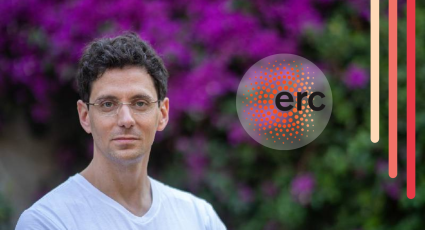Researchers at the Faculty developed an approach to attribute perfect electromagnetic transparency to mechanically rigid surfaces. This transparency is retained for all angles of incidence. The research, recently published in Advanced Optical Materials, was conducted by Prof. Ariel Epstein and the doctoral student Amit Shaham. Shaham presented the research and its derivatives in the European Conference on Antennas and Propagation (EuCAP 2024) in Galsgow and was awarded with the Best Electromagnetics Paper award, as well as in the IEEE International Symposium on Antennas and Propagation (APS/URSI 2024) in Florence, where he won the second prize in the Student Paper Competition. The innovative technology is based on the generalized Huygens’ condition – an electromagnetic principle formulated by Shaham and Epstein which facilitates synthesis of novel metasurfaces with optimal performance across the entire angular range. Existing metasurfaces largely suffer from limited acceptance angle, and the new approach solves this problem. This breakthrough and its implications are relevant to a wide range of applications, such as flat antennas, optical analog computing, and compact imaging systems.
Researchers at the Faculty developed an approach to attribute perfect electromagnetic transparency to mechanically rigid surfaces
More News
All News
Prof. Ido Kaminer Awarded Prestigious ERC POC 2026
We are proud to announce that Prof. Ido Kaminer has been awarded a prestigious ERC POC 2026 from the...
Jan 22,2026

